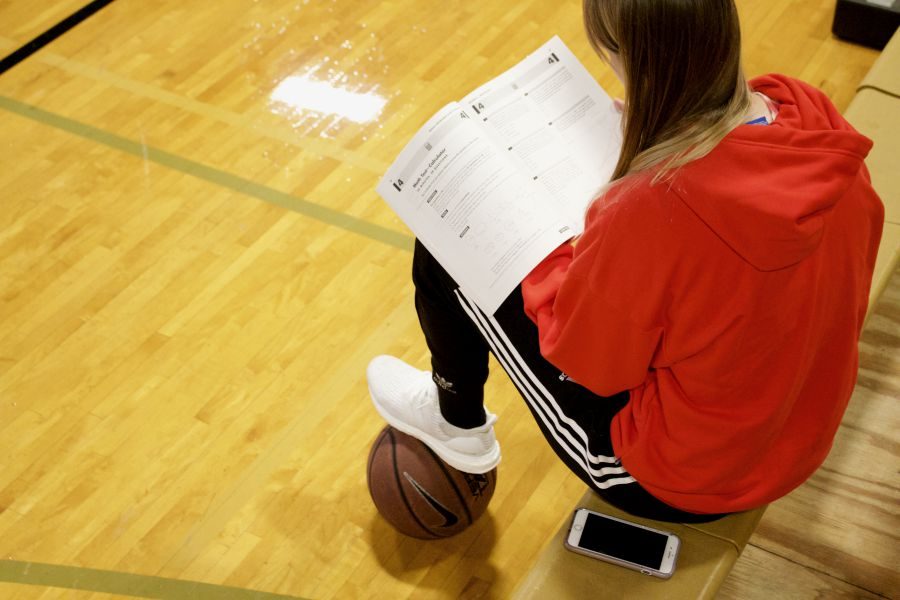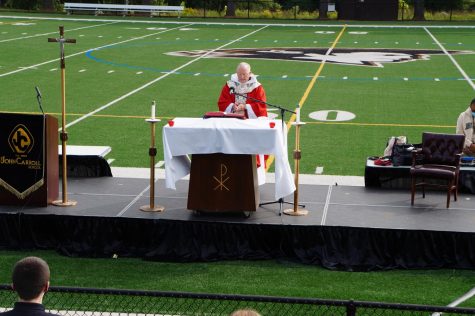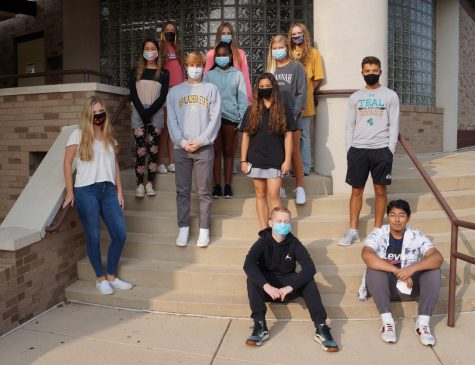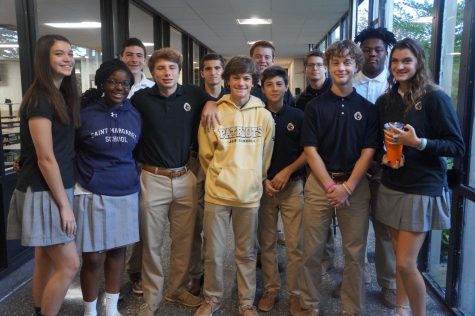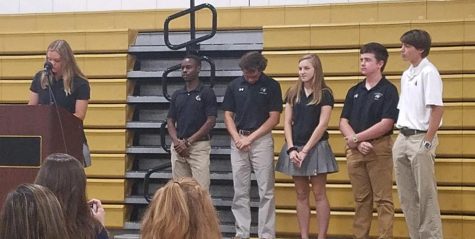New academic ineligibility policy initiated this school year
Athletes who struggle with academic ineligibility often find it difficult to balance their sports with their academics. The new policy, instituted by Principal Tom Durkin, aims to assist these athletes in their studies. Durkin hopes to accomplish this by instituting after school Study Halls, which will allow students failing two or more classes at mid-quarters to continue participating in their extracurricular activities, while still having time to study and get homework done.
The new academic ineligibility system, initiated by Principal Tom Durkin, went into effect Monday, Oct. 2. The revised policy involves multiple modifications to the old system, chief among them being the omission of mid-quarter grades as a factor in determining ineligibility.
Instead of becoming ineligible as in previous years, students found to be failing two or more classes at the end of mid quarters will be placed on academic review and will be made to attend after school study halls, which will last from 2:50 through 3:30 directly after school. The students will still be allowed to participate in their after-school activities after the study hall ends.
If students are still failing two or more classes at the culmination of a quarter, however, they will be considered ineligible for extracurricular activities until the conclusion of the next quarter, when their grades will be re-assessed.
The consideration of mid-quarter grades in determining ineligibility was a system unique to JC and was seen as unusual to some coaches. Men and women’s indoor track coach Robert Torres wasn’t very fond of the system when he first experienced it. “I thought it was odd when I first started coaching, but I went with it because that’s what they did,” Torres said.
Durkin was confused when learning about the academic ineligibility policy initially. “The mid-quarter grades are not official grades. They don’t appear on your transcript. They don’t go on a report card, and because of this, it didn’t make sense to me to use them to punish students,” Durkin said.
This new system was implemented to benefit the students, according to Durkin. “A lot of students tie their identity, their self worth, their self-esteem, to the extracurricular activities in which they participate … we don’t want to take that away from students,” Durkin said.
Varsity baseball head coach Darrion Siler agrees with Durkin’s new system of putting the students first. “[The new policy] takes away the retributive side of the ineligibility policy and instead uses it as a tool to assist rather than a tool to take something that may be a passion or a boon to a young man or woman’s life,” Siler said.
Coaches’ reactions to the adaptations are largely positive. Torres was pleased with the new changes. “It’s about time,” Torres said.
However, the after-school study hall may prove troublesome for some teams’ practice times. For indoor track, this is particularly true. “We start a little earlier than 3:30 because we only have so much daylight in the winter months, and we practice outside … the students who are at the Study Hall will just have to come out later,” Torres said.
The teachers are satisfied with the new program overall, as are the students. An anonymous indoor track athlete, who preferred not to be identified due to the revelation of his grades, concurred with the teachers. “I think it’s more effective because you’re getting your grades up during the study halls, while still being able to participate in your sport,” the student said.
This student was ineligible during his freshman year and expressed his grievances with the program. “It was kind of annoying because my grades went up immediately after I was ineligible, however, I still had to wait a long time to participate on the team,” the student said.
Durkin thinks that the new system should have been implemented over the summer, however, he was unaware of the system before school started. “Had I known about it before the school year, the system would have been changed over the summer, however, I just didn’t catch that until recently,” Durkin said.
Hayes Stancliff is a News Editor for The Patriot and jcpatriot.com.



